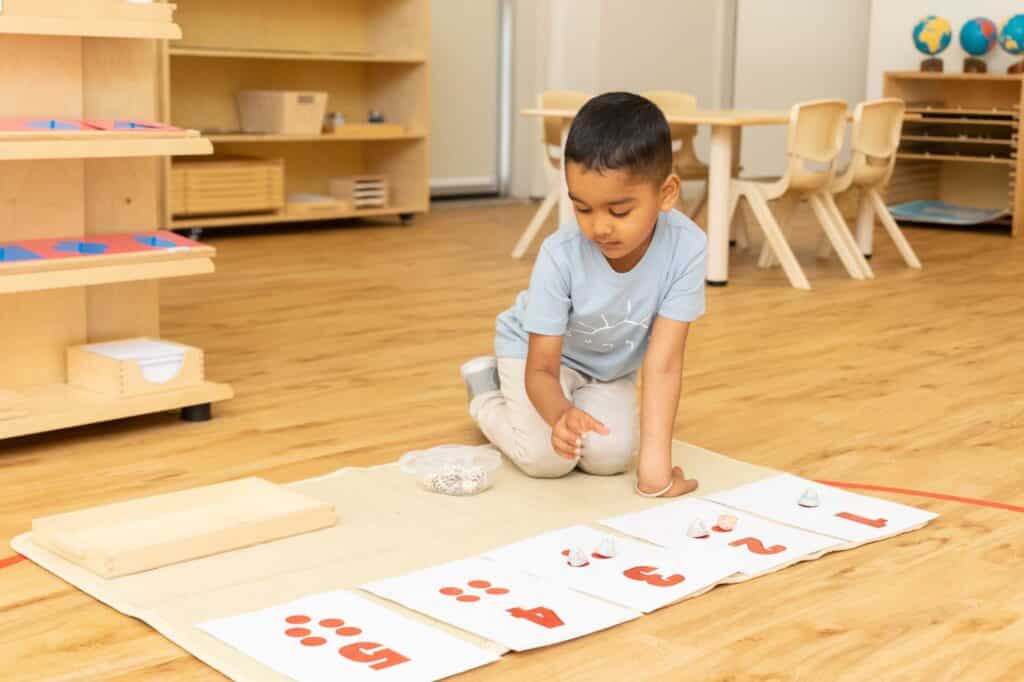Introduction
Montessori education has been a beacon of innovative learning for over a century. Developed by Dr. Maria Montessori in the early 1900s, this approach has transformed the way children are taught around the world. Its core principle revolves around the idea that children are naturally curious and learn best when they are allowed to explore at their own pace within a prepared environment. In this article, we’ll explore the foundations of Montessori education, its benefits, and how it fosters a lifelong love of learning.

What Is Montessori Education?
Montessori education is an educational philosophy that focuses on the development of the whole child—emotionally, socially, physically, and intellectually. The approach is centered on self-directed learning, where children are encouraged to take initiative, make choices, and work independently or in small groups. In contrast to traditional educational models that rely heavily on teacher-led instruction, Montessori classrooms are designed to offer children the freedom to explore subjects that interest them, at their own pace.
The Key Principles of Montessori Education
At the heart of Montessori education are several key principles that distinguish it from other educational approaches:
Child-Centered Learning: The child’s needs, interests, and developmental stages are prioritized. Educators are seen as guides or facilitators rather than traditional instructors.
Hands-On Learning: Montessori classrooms are filled with tactile materials that help children learn abstract concepts through touch and manipulation.
Prepared Environment: The learning space is thoughtfully arranged to encourage exploration, creativity, and independence. Everything is within reach of the child and organized to foster autonomy.
Mixed-Age Groups: Montessori classrooms typically consist of children of different ages, allowing for peer learning and collaboration. Younger children learn from older ones, and older children reinforce their knowledge by teaching younger peers.
Benefits of Montessori Education
Montessori education offers numerous benefits that can positively impact a child’s development. Research and anecdotal evidence suggest that children who experience Montessori education tend to perform better academically, socially, and emotionally.
1. Encourages Independence
One of the primary benefits of Montessori education is that it encourages independence. Children are given the freedom to choose their activities, work at their own pace, and make decisions about their learning. This fosters a sense of responsibility and self-confidence.
2. Promotes Critical Thinking
Montessori education emphasizes critical thinking and problem-solving. The materials in Montessori classrooms are designed to help children think creatively and develop a deep understanding of concepts. Rather than memorizing facts, children are encouraged to engage in hands-on activities that promote deeper learning.
3. Fosters Emotional and Social Development
Since Montessori classrooms involve mixed-age groups, children have the opportunity to interact with peers of varying abilities. This promotes empathy, cooperation, and leadership skills. Additionally, because children are encouraged to work independently, they develop emotional resilience and self-regulation.
How Montessori Education Works in the Classroom
Montessori classrooms are designed to support children’s natural curiosity and desire to learn. The learning environment is organized into different areas, such as language, mathematics, sensory activities, and cultural studies. Teachers observe the children and introduce materials that align with their developmental needs.
Montessori Materials
The materials used in Montessori classrooms are unique and designed to be self-correcting. This means that children can independently explore and learn concepts without constant supervision. For example, a child learning math might use wooden beads to understand the concept of addition and subtraction. These hands-on materials help children develop a concrete understanding of abstract ideas.
The Role of the Teacher
In Montessori education, teachers are viewed as guides or facilitators. Instead of delivering direct instruction, teachers observe their students, identify their interests, and provide them with materials that stimulate further exploration. Teachers also ensure that the classroom environment remains peaceful, respectful, and organized, so children can work without distractions.
Montessori and Its Impact on Future Success
The Montessori approach has proven to be effective in preparing children for future success. Studies have shown that Montessori students tend to perform better academically and socially than their peers in traditional education systems. The focus on independent learning, critical thinking, and social collaboration provides a strong foundation for lifelong success.
Conclusion
Montessori education is more than just a method of teaching; it’s a philosophy that nurtures children’s natural curiosity and promotes holistic development. By providing children with the freedom to explore, learn at their own pace, and work with hands-on materials, Montessori education fosters a love of learning that lasts a lifetime. As more parents and educators recognize the benefits of this approach, Montessori schools continue to grow in popularity, making a significant impact on the future of education.